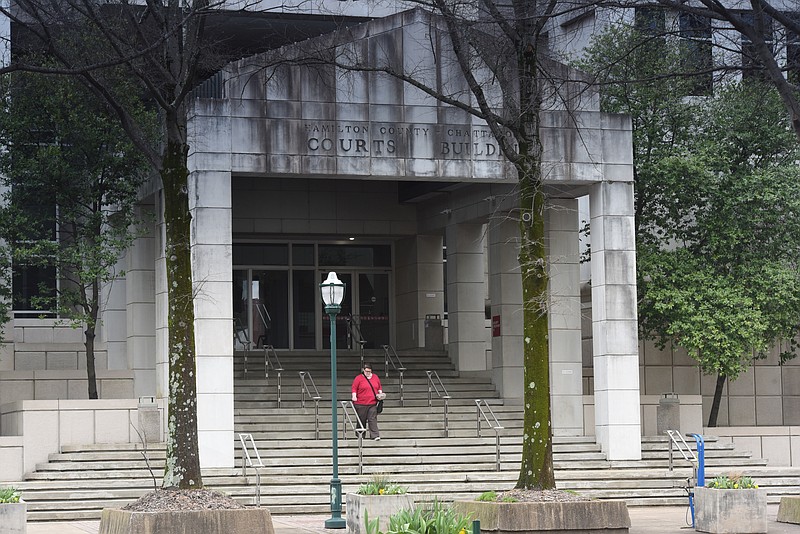A Hamilton County attorney said evidence in Andrew Smith's second-degree murder case should be dismissed because Collegedale police did not read Smith his rights to an attorney and to refuse to answer questions.
Smith is accused of giving fentanyl to his fiancee, Angela Whitt, last year, which led to her overdose death in their apartment.
Steven Brown, the defendant's attorney, filed a motion last year to suppress the statements Smith made to law enforcement and the consent he gave authorities to search his cellphone. On Thursday, Brown and Chief Opioid Prosecutor Jamie Pulido argued their respective points in front of Hamilton County Criminal Court Judge Amanda Dunn.
On April 16, 2023, Smith contacted police to report Whitt's death after he allegedly tampered with evidence, Collegedale police Detective Robert O'Daniel testified.
Smith allegedly tried to flush marijuana down the toilet, and empty plastic baggies were found in the bathroom trash, indicating other drugs were flushed, too, O'Daniel said.
Smith was arrested the next month on charges of tampering with evidence and simple possession of marijuana, O'Daniel said. He was handcuffed, transported to an interrogation room at the Collegedale Police Department and questioned about the events leading to Whitt's death.
Whitt's family and friends allegedly said her drug of choice was meth, but she only bought it in the crystal form, O'Daniel said. She was fearful of fentanyl and preferred to crush the drugs herself as a precaution.
It is undisputed that Smith was not read his rights to an attorney and to refuse to answer questions.
State prosecutors do not intend to introduce the video recording of Smith's interview at trial, Pulido said.
During that interview, Smith was presented with a form giving Collegedale police consent to search his cellphone, O'Daniel said. Smith signed it.
"He immediately said, 'Yes, you can 100%,'" O'Daniel said.
Smith's signing of the form provided further evidence against himself without knowing his constitutional rights, Brown said. It was an illegal interrogation, so any evidence obtained through his cellphone should be dismissed.
On the other hand, Pulido said Smith gave consent freely, and the cellphone search should be viewed in a vacuum.
(READ MORE: 'Lots of gray area': Effort to dismiss evidence against Jason Chen to be heard)
Brown began questioning O'Daniel further about concerns surrounding Smith's and Whitt's cellphones, but Pulido made a sustained objection before it reached its conclusion.
Whitt and Smith allegedly both had the same phone passcode, which was the last four digits of Smith's Social Security number, O'Daniel said.
O'Daniel may have used other methods to try to get into Whitt's phone, according to Brown.
"You don't remember pulling the sheet down off her face and trying to use facial recognition?" Brown said.
O'Daniel said he couldn't recall.
Dunn is expected to make a written ruling on the hearing in the coming weeks.
Contact Sofia Saric at ssaric@timesfreepress.com or 423-757-6476.
